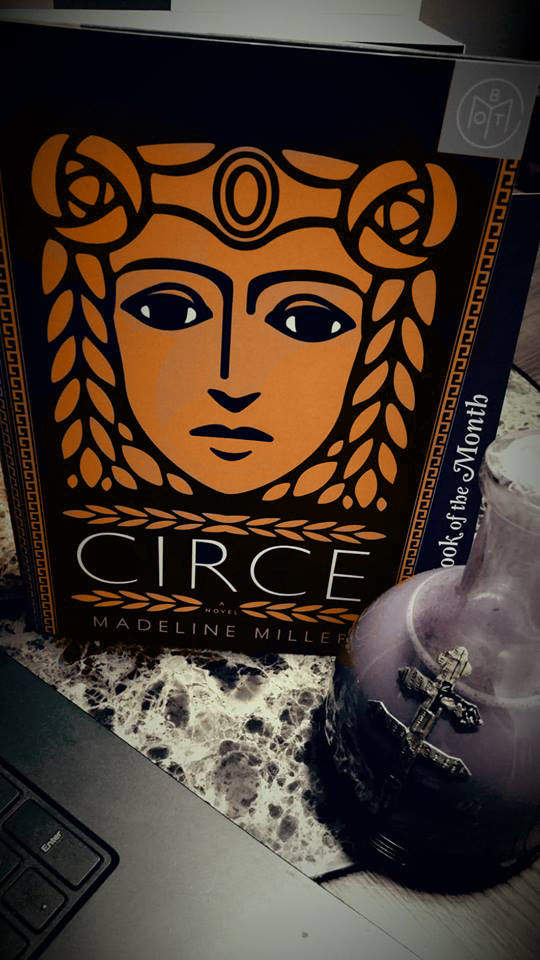Circe Book Review
- Caelyn Shaner
- Jul 4, 2018
- 2 min read

A literary feat of mythic proportions, I was immediately sucked into the story of Circe, a lesser goddess struggling to connect to her own humanity. Written by the brilliant Madeline Miller, the novel Circe is a study in self-actualization wrapped in the epic tones of Greek myths themselves.
The novel is a slow boil, taking place over many centuries as the immortal daughter of Helios and Perse engages in a fight for all she holds dear, but even more importantly for herself. Its genius lies in the care Miller takes to build Circe into a fierce, well-rounded character. The author doesn’t shy away from lost love, abusive relationships, or the unspeakable horrors that shape Circe into the woman she ultimately becomes. Her happiness doesn’t rest in the arms of a man or in the joys of motherhood – the latter of which is painted with the grisly realism of exhaustion, frustration, and even desperation as Circe describes her new born son as hating everything, herself included.
Circe is painted at the beginning of the novel as odd, lackluster, and irritating to her divine family. A blight upon her godly legacy, her sun-god father can’t pay a suitor to take her away. She is dismissed again and again, even by her younger, crueler, prettier siblings. This abuse grows more acute over time, physically and mentally, even by the lovers she takes.
Slowly and painstakingly, Circe takes her fate into her own hands, finding her own power in the one thing gods cannot tolerate – labor and toil. She becomes known as the Witch of Aiaia, exiled after defying her father and the other divine beings, and comes to witchcraft out of sheer will and hard work rather than any natural (or rather supernatural) ability. Over hundreds of years, she begins to see herself as valuable – strong in her own right, wise due to her many failures, beautiful to herself if to no one else, and good because she continuously chooses to be.
Miller does not weave a tale of someone finding their place in the world, when everything magically clicks into place with the right person, home, or realization. Instead, she builds a terrible flawed and beaten character who forges her own path even though it never gets easier for her to do so, who loves of her own free will even after years of abuse and rejection, and who finds and values her own humanity though it came to her no more naturally than her cursed divinity.
The novel is a perfect display of feminism, spouting from its main character’s many imperfections. Circe’s path to loving herself is brutal, humiliating, realistic (in her reactions if not in the actual acts of dealing with gods and monsters) and absolutely glorious. Tragically, hopefully beautiful, Miller’s Circe has given us all a female lead to be proud of.
Learn more at http://madelinemiller.com/circe/









Comments